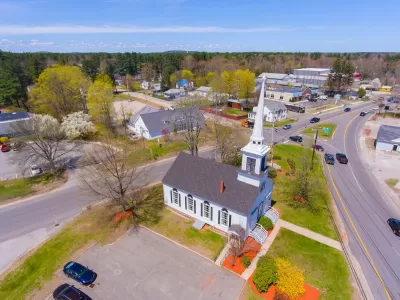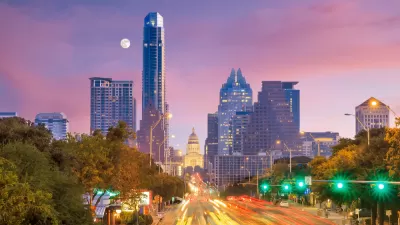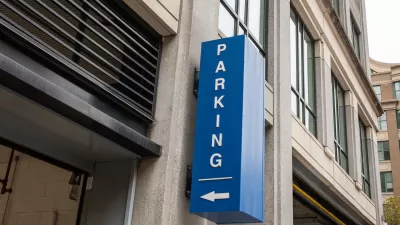Small towns and communities around the country are eliminating parking requirements at a faster rate than big cities.

In an article for Sightline, Catie Gould provides three examples of small towns that have eliminated parking minimums, noting that more small towns have done so than big cities. According to Gould, “While large cities like San Jose, California, and Austin, Texas, garner national press coverage for eliminating parking mandates, this policy reform is most commonly enacted in towns with fewer than 25,000 residents.”
For every U.S. city with populations of over 250,000 that has repealed parking requirements, two small towns (under 25,000) have done so. This is in part due to the fact that there are more small towns than big cities — “But small jurisdictions are also likely underrepresented in the Parking Reform Network data. With little to no media coverage of zoning changes in places like Gilman, Wisconsin, or Canandaigua, New York, those parking reforms are less likely to make it onto the map in the first place.” Gould also points out that many small and rural communities never enacted parking mandates in the first place.
Gould highlights Ecorse, Michigan, where deindustrialization and population loss left the town with ample underused parking and vacant buildings. Eliminating parking requirements has made it easier to redevelop properties, says town planner Nani Wolf.
FULL STORY: Twice As Many Small Towns Have Eliminated Parking Mandates As Large Cities

Planetizen Federal Action Tracker
A weekly monitor of how Trump’s orders and actions are impacting planners and planning in America.

Congressman Proposes Bill to Rename DC Metro “Trump Train”
The Make Autorail Great Again Act would withhold federal funding to the system until the Washington Metropolitan Area Transit Authority (WMATA), rebrands as the Washington Metropolitan Authority for Greater Access (WMAGA).

The Simple Legislative Tool Transforming Vacant Downtowns
In California, Michigan and Georgia, an easy win is bringing dollars — and delight — back to city centers.

Albuquerque’s Microtransit: A Planner’s Answer to Food Access Gaps
New microtransit vans in Albuquerque aim to close food access gaps by linking low-income areas to grocery stores, cutting travel times by 30 percent and offering planners a scalable model for equity-focused transit.

This City Will Pay You to Meet Your Neighbors
A North Kansas City grant program offers up to $400 for residents to throw neighborhood block parties.

Commentary: Our Silence Will Not Protect Us
Keeping our heads down and our language inoffensive is not the right response to the times we’re in. Solidarity and courage is.
Urban Design for Planners 1: Software Tools
This six-course series explores essential urban design concepts using open source software and equips planners with the tools they need to participate fully in the urban design process.
Planning for Universal Design
Learn the tools for implementing Universal Design in planning regulations.
Smith Gee Studio
City of Charlotte
City of Camden Redevelopment Agency
City of Astoria
Transportation Research & Education Center (TREC) at Portland State University
US High Speed Rail Association
City of Camden Redevelopment Agency
Municipality of Princeton (NJ)





























